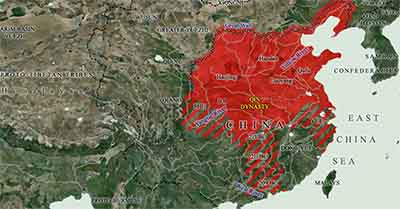Contents
- Introduction
- Burning Books 213 B.C.
- Persecuting Philosophers
- Banned Books & Bible
- Books lost forever
- Inquisition Censorship
- Index Librorum Prohibitorium
- Copernicus & Galileo
- Darkness in Enlightenment
- Revolution & Banned Books
- Colonialism & Book Bans
- New Nation Censorship
- Nazi Germany Book Burning
- USSR Banned Books
- McCarthyism Book Banning
- 21st Century Book Bans
- Banned Books Battles
- Digital Age Book Banning
- World Wide Book Banning
- Book Banning is Bad
- The Future of Book Banning
- Looking Back in History
- Discover New Worlds
History of Banned Books
Burning Books & Burying Intellectuals - 213 BC
Some events of history are so horrendous, they will forever warn future generations of the consequences of oppressive power. Ancient China’s burning books history from over 2000 years is one of those awful events. Moreover, this infamous event shows the destructive power of unlimited authority. Also, it highlights the lengths to which such rulers will go to maintain their power.

Qin Shi Huang became emperor of China in 221 BC. His claim to fame was uniting many warring states into one empire, China. However, the dark side was that he was so obsessed with creating a homogenous society that he felt the need to eliminate any challenges to his authority such as differing ideas and philosophies. Allegedly he carried out one of the most brutal acts of censorship in history.
His “Burning of Books” was attempting to erase past history and culture. Emperor Qin ordered all books not related to subjects that he allowed, be destroyed. He made exceptions for agriculture, divination, medicine and his dynasty’s history. Some of the targeted books were from the “Hundred Schools of Thought”. This included Confucianism, Daoism and Legalism.
This was bad, but that wasn’t the end of it. Now he focused on the scholars. They were the keepers of knowledge and the proponents of the newly-banned philosophies. In an act that became known as the “Burying of the Scholars”, many historians believe that Qin ordered hundreds of them to be buried alive.
As a result of the banning and burying, the world lost a big part of China’s cultural and intellectual heritage forever. Since Qin destroyed the Confucian writings, it took years to recover and partially rewrite them from the memories of surviving scholars.
In spite of Qin’s best efforts, he did not wipe out the philosophies of that time. After his death the Han dynasty came about. They revived Confucianism which went on to influence Chinese culture and governance for the following centuries.